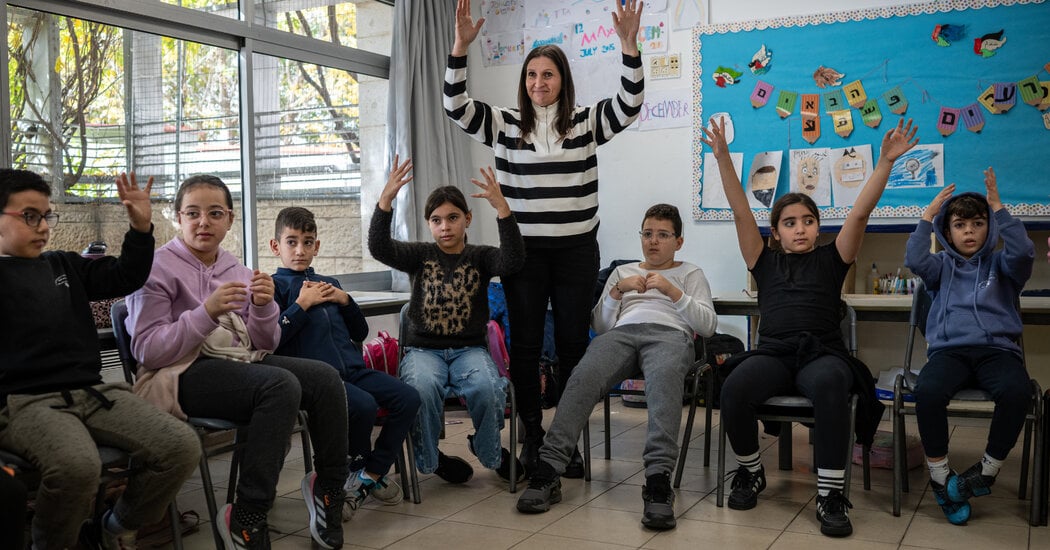In a classroom decorated with Hebrew and Arabic letters, a group of third graders — their eyes closed, their hands placed facing up on their laps — took a deep breath in unison.
“And exhale,” a teacher told them.
The students, a mix of Jews and Arabs, attend Max Rayne Hand in Hand School in Jerusalem, one of six such bilingual institutions in Israel dedicated to the proposition that Israelis and Palestinians can learn and live together in peace. On a recent day this month, soon after a temporary cease-fire in Gaza collapsed and the prospect for peace seemed more distant than ever, the students were meditating.
If regional peace seemed momentarily unobtainable, at least they could try for inner calm.
Schools across Israel, most of them divided along lines of religion and language, are struggling with how to help students cope emotionally during the deadliest conflict in a generation. At Hand in Hand schools, where every class has two teachers — a Hebrew speaker and an Arabic speaker — the conversation about the Oct. 7 terrorist attacks and the subsequent war unfolding in Gaza sounds markedly different than in other schools.



Sounds brilliant, sharing feelings with others under guidance of adults is a healthy way to learn, as long as the adults are guiding properly